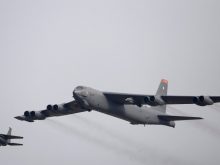The original source of this article is Global Research Since World War II most of the world’s conflicts have revolved around struggles for independence against Western and Japanese colonial/imperial regimes. Following formal independence, a new…
Category: James Petras
James Petras, a retired Bartle Professor (Emeritus) of Sociology at Binghamton University, SUNY, New York, U.S., and adjunct professor at Saint Mary’s University, Halifax, Nova Scotia, Canada. He describes himself as a “revolutionary and anti-imperialist” activist and writer. He has worked with the Brazilian landless workers’ movement and the unemployed workers’ movement in Argentina. He is currently a member of the editorial collective of Canadian Dimension. Petras is the author of numerous books and articles and contributes to Counterpunch.
Over the past quarter century progressive writers, activists and academics have followed a trajectory from left to right – with each presidential campaign seeming to move them further to the right. Beginning in the 1990’s…
On a scale not seen since the ‘great’ world depression of the 1930’s, the US political system is experiencing sharp political attacks, divisions and power grabs. Executive firings, congressional investigations, demands for impeachment, witch hunts, threats of imprisonment for ‘contempt of Congress’ and naked power struggles have shredded the façade of political unity and consensus among competing powerful US oligarchs. For the first time in US history, the incumbent elected president struggles on a daily basis to wield state power. The opposition-controlled state (National Public Radio) and corporate organs of mass propaganda are pitted against the presidential regime. Factions of the military elite and business oligarchy face off in the domestic and international arena. The oligarchs debate and insult each other. They falsify charges, plot and deceive. Their political acolytes, who witness these momentous conflicts, are mute, dumb and blind to the real interests at stake.
By the end of the first month of President Trump’s Administration we are in a better position to evaluate the policies and direction of the new President. An examination of foreign and domestic policy, particularly…
Introduction President Trump is deeply embedded in the politics of the deep state structure of American imperialism. Contrary to occasional references to non-intervention in overseas wars, Trump has followed in the footsteps of his predecessors….
During his inaugural speech, President Trump clearly and forcefully outlined the strategic political-economic policies he will pursue over the next four years. Anti-Trump journalist, editorialists, academics and experts, who appear in the Financial Times, New York Times, Washington Post and the Wall Street Journal have repeatedly distorted and lied about the President’s program as well as his critique of existing and past policies. We will begin by seriously discussing President Trump’s critique of the contemporary political economy and proceed to elaborate on his alternatives and its weaknesses. President Trump’s Critique of the Ruling Class The centerpiece of Trump’s critique of the current ruling elite is the negative impact of its form of globalization on US production, trade and fiscal imbalances and on the labor market. Trump cites the fact that US industrial capitalism has drastically shifted the locus of its investments, innovations and profits overseas as an example of globalization’s negative effects. For two decades many politicians and pundits have bemoaned the loss of well-paid jobs and stable local industries as part of their campaign rhetoric or in public meetings, but none have taken any effective action against these most harmful aspects of globalization. Trump denounced them as “all talk and no action” while promising to end the empty speeches and implement major changes.
The malady, common among political leaders who commit heartless crimes while craving popular adulation as heroes and misunderstood saints, is ‘Political Munchausen Syndrome by Proxy’ (PMSP). January 25, 2017 “Information Clearing House” – PMSP best…
The CIA’s Overt Threats against Trump The norms of US capitalist democracy include the election of presidential candidates through competitive elections, unimpeded by force and violence by the permanent institutions of the state. Voter manipulation has occurred during the recent elections, as in the case of the John F. Kennedy victory in 1960 and the George W. Bush victory over ‘Al’ Gore in 2000. But despite the dubious electoral outcomes in these cases, the ‘defeated’ candidate conceded and sought via legislation, judicial rulings, lobbying and peaceful protests to register their opposition. These norms are no longer operative. During the election process, and in the run-up to the inauguration of US President-Elect Donald Trump, fundamental electoral institutions were challenged and coercive institutions were activated to disqualify the elected president and desperate overt public pronouncements threatened the entire electoral order.
The original source of this article is Global Research With a few notable exceptions, political leaders are chosen by political leaders, and not by electorates or community-based organizations or popular assemblies. Popular media figures and…
US officialdom and their media megaphones have systematically concocted narratives having less to do with political reality and more with their hallucinogenic world view. Pre-election and post-election reportage weaves a tapestry of fiction and fantasy. We will discuss the most pernicious of these remarkable foibles and fables and their predictable failures. 1. Collapse of Capitalism The pundits, prestigious editorialists and ‘economists with gravitas’, have convinced themselves that the election of Donald Trump would ‘lead to the Collapse of Capitalism (COC)’. They cited his campaign attacks of globalization and trade agreements, as well as his ‘reckless’ swipes at speculators. In reality, Trump was criticizing a specific kind of capitalism. The pundits overlooked the variety of capitalisms that constitute the US economy. With their snouts deep in the trough, their own vision was limited; their curly tails blindly twirled meaningless formulae on blackboards; their ample backsides flapping away in place of their mouths. Thus occupied, they easily ignored Trump’s glorification of national capitalism.

